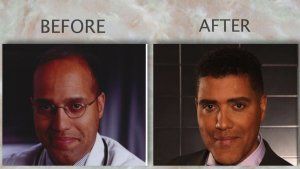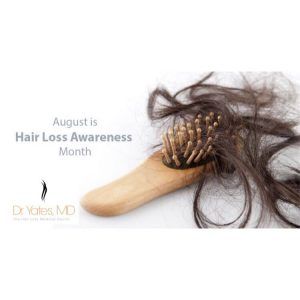Alopecia Areata and Your Health
- By Testing Testing
- •
- 21 Apr, 2017
- •
Alopecia Areata and Your Health
Alopecia areata is a common disease which targets hair follicles,
usually causing hair to fall out in small, smooth, round quarter-sized
patches. It affects over four million people in America. The amount of
hair loss experienced depends on the person, and the disease rarely
leads to complete hair loss on the affected area, generally on the head,
face, or body.
Alopecia areata is an autoimmune disease which can affect anyone and
often reveals itself in childhood. Because autoimmune diseases prevent
the body from shielding itself from infection and disease, the immune
system begins to attack even the healthy parts of the body. In the case
of alopecia, the immune system attacks a person’s hair follicles.
There is no way to prevent alopecia from occurring, but there are ways to manage the condition, which you will find below:
Alopecia Areata and Your Health
If you have alopecia areata, it is best to make an appointment with your dermatologist to properly diagnose your problem and discuss treatment options. Here is some general information about the disease to consider before seeing your doctor.
This disease is not contagious and those affected with alopecia are generally in good health in many other ways. Alopecia areata will not cause you to feel pain, it does not make you feel ill, and it does not prevent you from living a perfectly normal life.
However, dealing with hair loss can present its challenges in terms of self-image and confidence. Understanding the disease and reaching out to others with alopecia for support and advice will help you cope with the hair loss while you learn to value yourself and your life regardless of having alopecia areata.
Will My Hair Grow Back?
While your hair may grow back, there is also a chance of losing it
again. Some people lose more hair than others and some people may never
see hair growth, while others have total hair growth over time. Symptoms
really vary case-by-case. While there is no cure for this disease,
there are medically approved and effective treatments that may help the
hair grow back.
Certain medical treatments stimulate hair growth, though they cannot
prevent further hair loss or cure the disease. You can contact a hair
loss specialist to discuss therapies, such as steroid injections or
creams.
Coping With Alopecia Areata
There are also some things within your control to reduce discomforts or dangers of hair loss, such as using protective sunscreen on your scalp, face, and other exposed skin, wearing sunglasses to protect yourself from the sun and dust, and wearing hats or scarves to protect your head.
What About the Emotional Outcomes of Alopecia?
This disease affects everyone differently, in terms of physical, mental, and emotional impacts. Those affected with alopecia areata can feel completely alone, even isolating close family and friends, leaving everyone feeling helpless and frustrated.
Commonly, alopecia areata patients respond to the disease in some of the following ways:
Feeling alone and isolated
Feeling of loss and grief
Guilt, blame, or embarrassment
Worry that others will find out about their disease
Sadness or depression
Hopelessness
Discomfort in having to wear a wig, scarf, or hat
You can cope with the feelings of shame and anger about the disease by
understanding that you are not alone. You can learn about the disease
and reach out to others for a supportive network.
If that is not enough, many alopecia areata patients find comfort
through counseling where they learn to work through their feelings and
develop coping skills. You can contact your physician for a referral to a
mental health professional.







